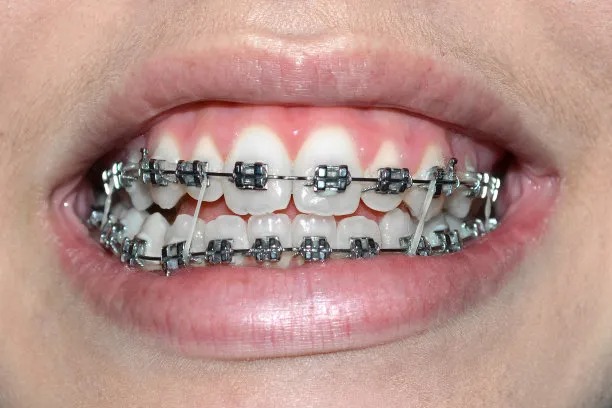Summary: Dental implants have revolutionized the approach to tooth loss, offering patients a lasting solution that restores functionality and improves aesthetics. This comprehensive guide outlines the myriad benefits associated with dental implants, addressing their significant advantages, the intricacies of the treatment process, associated costs, and post-treatment care considerations. Each section aims to equip readers with thorough knowledge, fostering informed decision-making regarding dental implant treatments.
The Numerous Benefits of Dental Implants

Dental implants stand out due to their remarkable ability to enhance both appearance and functionality. Unlike traditional dentures or bridges, implants fuse with the jawbone, providing a stable foundation for replacement teeth. This ensures that the new teeth look and function like natural ones, allowing patients to chew and speak confidently.
One of the significant benefits of dental implants is their longevity. With proper care, implants can last for decades, making them a cost-effective solution in the long run. Patients enjoy the advantage of not needing to worry about frequent replacements or adjustments as they might with other dental prosthetics.
Moreover, dental implants contribute to preserving jawbone integrity. When a tooth is lost, the bone surrounding the area can deteriorate due to lack of stimulation. Implants provide the necessary stimulation, maintaining the structure of the jaw and preventing bone loss over time.
The Dental Implant Treatment Process
The treatment process for dental implants typically involves several stages, starting with a thorough dental examination and imaging. This initial stage is crucial, as it allows the dentist to assess the patients oral health, bone structure, and suitability for the procedure. A personalized treatment plan is then developed based on specific patient needs.
Once the planning is complete, the placement of the implant occurs, which involves surgically inserting the metal post into the jawbone. This process may vary in complexity but usually requires local anesthesia to ensure the patients comfort. After placement, a healing period of several months ensues, allowing the implant to integrate with the bone securely.
After the healing phase, an abutment is attached to the implant, which will hold the crown. Finally, custom-made crowns are created to match the patients natural teeth for a seamless blend. Throughout the treatment, communication between the dentist and patient is crucial to ensure a smooth and successful process.
Understanding the Costs of Dental Implants
When considering dental implants, understanding the associated costs is essential. The price of implants can vary widely based on numerous factors, including the number of implants needed, geographical location, and the dentists expertise. It is important for patients to seek comprehensive quotes that encompass all aspects of the treatment.
Additionally, insurance coverage for dental implants varies, and many patients are unaware of their potential benefits. Its advisable to consult with dental insurance providers to understand what is included and explore financing options available to ease the financial burden.
Ultimately, while the initial cost of dental implants may seem high, the long-term benefits — in terms of durability and improved quality of life — often outweigh the investment. Having a candid discussion with a dental professional can help clarify these costs and provide a clearer understanding of the value associated with this treatment.
Post-Treatment Care and Maintenance
Post-treatment care is vital for maintaining the longevity and health of dental implants. After the procedure, patients are usually advised to follow specific oral hygiene practices to prevent infections and promote healing. This includes brushing and flossing like regular teeth and potentially using antimicrobial mouthwash.
Routine dental check-ups are essential to monitor the condition of the implants and surrounding structures. Regular visits allow dentists to detect any issues early, ensuring that the implants remain healthy and stable over time. Patients should also inform their dentists of any changes in their oral health to address concerns proactively.
A balanced diet also plays a significant role in ensuring the durability of dental implants. Patients should focus on consuming foods rich in calcium and vitamin D, which contribute to bone health. Maintaining a healthy lifestyle can greatly enhance the overall success of dental implant treatments.
Summary:
Dental implants serve as a transformative solution for individuals facing tooth loss, restoring both functionality and confidence. The benefits range from aesthetic appeal to improved oral health, and understanding the process of placement is crucial for potential candidates. Alongside cost awareness and post-treatment care, these factors underpin the prominence of dental implants in modern dentistry.
This article is compiled by Vickong Dental and the content is for reference only.
Vickong Dental
Vickong Dental is a large medical group established in Hong Kong in 2008 by professors from well-known medical universities in Guangdong and Hong Kong, as well as medical doctors from key national '985' universities (including Master's supervisors and senior professors). The chain of branches brings together expert dentists with PhDs and Master's degrees from Hong Kong and Mainland China, committed to providing high-quality dental treatment.
"Vickong Dental Practices the University Motto of 'Healing and Serving Society,' with a Stable Operation for Sixteen Years. It Has Been honored with Hong Kong Enterprise Leaders's Choice,' and is a Global Trusted Implant Center for the Nobel Implant System. Recommended by Hong Kong Metro Broadcast and Guangdong Television, it Serves Customers from Over Thirty Countries and Regions, Gaining the Trust and Favor of Citizens from the Guangdong-Hong Kong-Macau Greater Bay Area and Surrounding Cities.

Thousands of customers' unanimous praise
The most recognized and highly recommended dental service by customers in the Guangdong-Hong Kong-Macau Greater Bay Area
We Ensure You Receive Detailed Care and Attention Here
Hong Kong standards, Shenzhen prices, Your Trusted English-speaking dentists

Vickong Dental Medical-Grade Instrument Disinfection Process
Vickong Dental Medical-Grade Instrument Disinfection Process

Vickong Dental Chain: A Warm and Comfortable Environment for Treatment






Appointment Hours

Q&A
Why choose Vickong Dental?
Vickong Dental practices the university motto 「Medicine to Benefit Society」, with each branch bringing together highly qualified dentists with doctoral and master’s degrees from Hong Kong and the Mainland, and has maintained seventeen years of steady operation。Recipient of 「2024 Hong Kong Enterprise Leaders Brand」, 「2025 Hong Kong Enterprise Leaders Brand」, a Nobel Biocare Global Trusted Implant Center, and a brand recommended by Metro Radio Hong Kong and Guangdong TV。
To date, we have served customers from more than thirty countries and regions,earning exceptionally high word-of-mouth recognition and trusted recommendations from residents across the Guangdong-Hong Kong-Macao Greater Bay Area and surrounding cities
We have eight major branches in Zhuhai、Shenzhen,and a consultation and service assurance center in Hong Kong,so you can book a free consultation at any time for any questions,which is very reassuring.
If I do not accept the quotation after the CT scan, will I be charged??
No! As long as the actual treatment has not started, you will not be charged any fees.
Will there be any additional charges during the treatment process?
No, there won’t be any additional charges. Before treatment begins, we will clearly explain the treatment plan and its corresponding fees. Only after the patient agrees and signs the consent form will we proceed with the dental service.
Can I pay in Hong Kong dollars?
Yes. Vickong Dental accepts payment in Hong Kong dollars. The amount will be converted based on the exchange rate of the day, and the applicable rate will be clearly communicated to you in advance.
Can I reschedule my appointment at any time?
Yes. Please contact us via **WeChat** or **WhatsApp** as early as possible, providing your original appointment time and details, along with your preferred new date and time slot for rescheduling.













